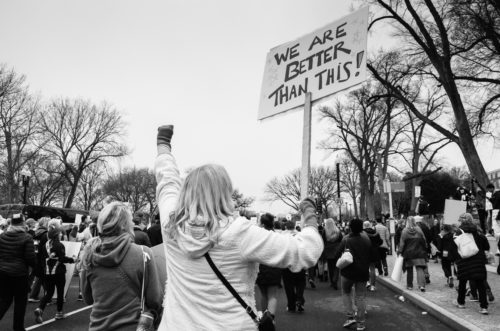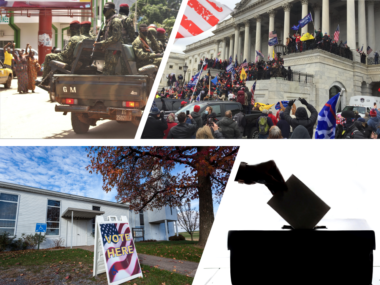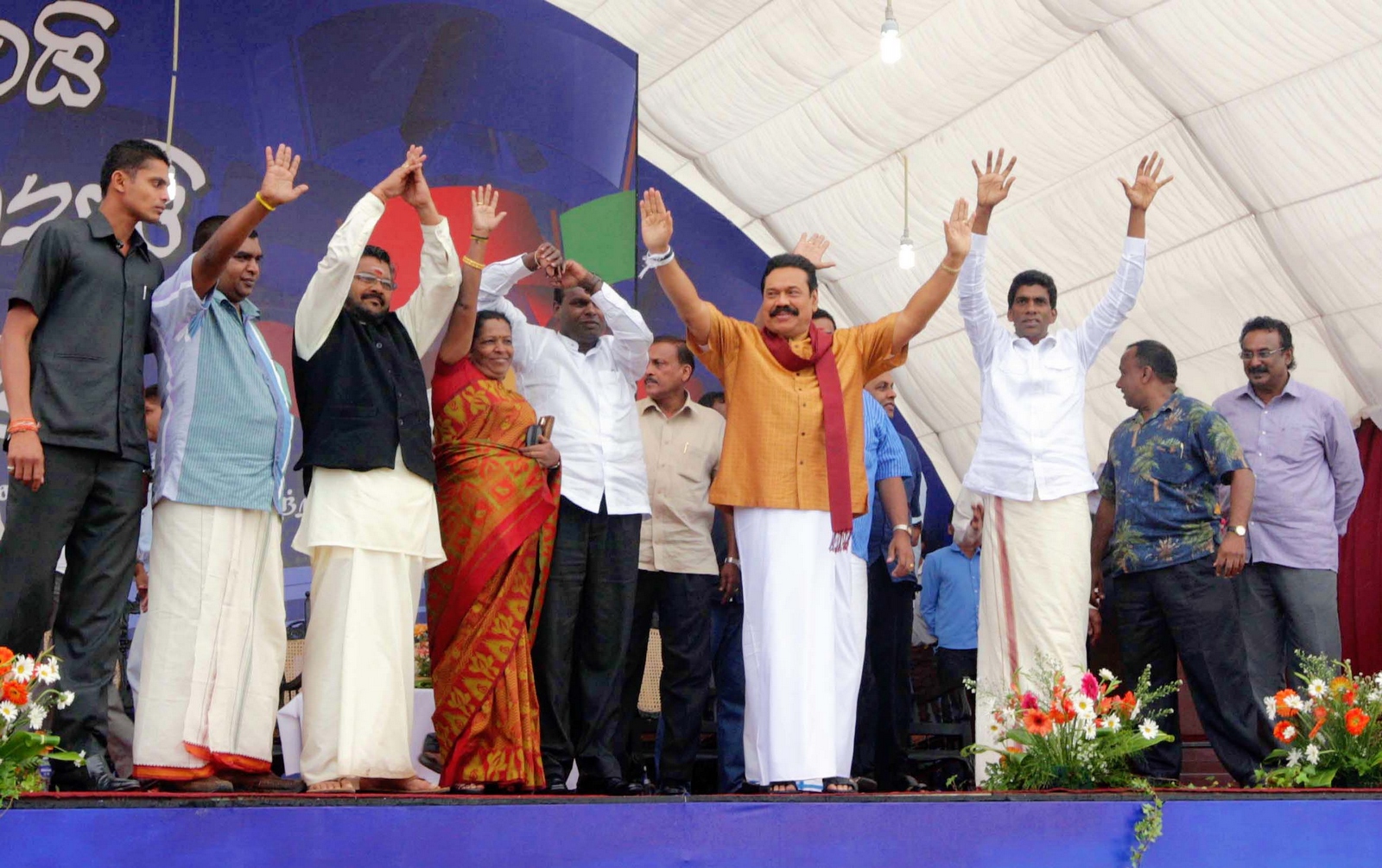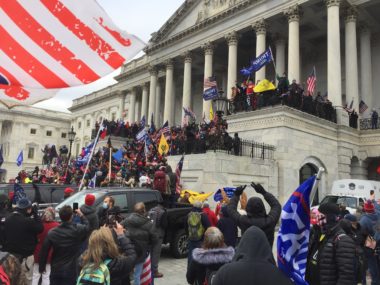
Last Saturday, Afghanistan held its first presidential election since 2009. A surprisingly large number of Afghan citizens turned out to vote despite the fact that their safety could not be guaranteed, and despite the fact that fraud was likely. This stands in contrast to elections that have been held since November in Bangladesh, Nepal and Thailand, where large numbers of citizens have boycotted the polls specifically because the results were likely to be rigged.
Today’s puzzler is this: In a world where elections in developing democracies are rarely entirely “free and fair” why do some citizens choose to participate in fraudulent elections, while others refuse?








12 comments
You seem to assume that everyone knows they are fraudulent. In addition, some people might support the fraud (e.g., Alawites in Syria). Also some people believe that the amount of fraud is limited, thus even with fraudulent elections there is a non-zero chance of a change (e.g., Green revolution in Iran).
Likely a function of (anticipated) extent of fraud. Problem with the examples you give is that boycott decisions made by parties not citizens.
I’d guess that for these type of boycotts to take place you need 1) an expectation that one side will win the election, or that fraud will only benefit one side, and 2) sufficient party or social group disciple to enforce a boycott. So you have to be between the two extremes: not the order of competitive, fair elections, but not so much political disorder that elections are unpredictable and there aren’t strong partisan blocs.
It’s possible that they were brought as part of some deal or perhaps they were paid to go out and vote or that they viewed the elections as a zero sum game where they had to make sure that the candidate from their group won no matter what or something else altogether.
Of course this assumes that it was some corrupt, anti-democratic reason. It’s theoretically possible that they really did want to vote of their own volition. I just suspect that corruption and deals played some part in it based on international examples and Afghanistan’s recent history.
Good puzzle, although news reports also suggest that turnout was depressed/ suppressed in more dangerous rural Afghan communities
In line with what others have said, the variation between election boycott in these states may be a function of party or group cohesion. States with more robust parties or civil society groups are likely better able to collectively enforce a boycott. But what explains the variation within the same state but from election to election. In Iran for example, Ahmadinejad’s 1st election came at time of widespread reformist boycotts (including the leadership). In contrast, in 2009 and again in 2013 the reformist movement leadership encouraged participation over boycott (even though there certainly were those among the reformist rank and file that boycotted the election due to perceived transgressions in the 2009 election). So perhaps the corollary question to the one posed above is: what accounts for the variation in boycotts calls between elections within the same state. Why do citizens (or parties or groups) chose to boycott in one election but not in subsequent ones. It’s about variation over time as opposed to variation over space, that way group or party cohesion would rendered a constant (assuming that doesn’t change from time t to time t+1).
The answer to this latter question is perhaps a bit more complex. What do we know from the empirical record? The record is scant though I’m likely missing some prominent articles on the topic but from what I can gather the state of the literature suggests 1) Boycotts hasten the electoral defeat of hybrid regimes without much risk of destabilizing the electoral process, but ultimately do not lead to increased competition in successor regimes (Smith 2013) 2) Election boycotts are over twice as common when international observers are present (Kelley 2011) 3) Point # 2’s counterintuitive finding seems stem from the fact that international benefits for democratic elections give electoral autocrats the incentive to invite international observers and manipulate elections to minimize international criticism (Beaulieu and Hyde 2009).
If hybrid regimes (as Smith 2013 argues) are right to fear widespread boycotts, then the threat of boycott by opposition groups may actually be used as a potential bargaining chip by the opposition to gain concessions from those in power. So in the case of Iran, Rouhani’s electoral victory can be viewed as a bargaining bit between the reformists on one side and regime insiders on the other. Regime insiders, fearful of mass boycott and loss of legitimacy at home (that could spell troubles for Iran in its international negotiations) and understanding that reformist participation in presidential elections would likely result in a reformist win and hardliner defeat, saw their fortunes best secured by co-opting the reformist movement back into the fold of the regime. What did they get out of it? The regime was able to successfully marginalize Aref -the more radical and popular of the two reformist candidates -and promote a regime insider who was also a reformist ‘acceptable’ candidate in the form of Rouhani. What did the opposition get out of it? They were able to successfully field a candidate in the elections, their candidate was victorious, and from past experience -Iranians know their social, political, and economic welfare does vary from administration to administration.
So what can we conclude from all this? Well it’s still tough to say but perhaps we should begin our search for some further explanations by examining variation in the strategic environment prior to elections. In the case of 2005 when the reformists boycotted and Ahmadinejad had won it seems the regime had little incentive to negotiate with the opposition in order to encourage them to vote -for one no boycotts had been staged by any major opposition groups since Khamenei’s time in power so the regime perhaps did not feat what it did not know. So calls for boycotts prior to the elections were likely welcomed by the regime -their guy would win without resorting to electoral fraud. But after 2009, the regime likely learned its lesson having experienced a boycott in 2005, further loss of legitimacy following the elections in 2009, and the fallout from sanctions more recently. Instead of encouraging a boycott as the regime practically did during the 2005 elections, it actively sought participation of the public and a high electoral turnout, which Khamenei subsequently used as a snub against the Americans and Europeans. Paradoxically, we may see more boycotts in states where the regimes are least likely ‘harmed’ by them and less boycotts in states where regimes would be more ‘harmed’ by them because in the latter case regimes would be incentivized to make concessions to avoid boycott while in the former case no such incentives exists.
Perhaps what is happening is that voters are rational: even fraudulent elections can deliver voice and participation (especially if it with proportional representation), while boycotts normally lead to just exclusion and strengthened dictatorship.
not really supported by empirical record -> ‘Boycotts hasten the electoral defeat of hybrid regimes without much risk of destabilizing the electoral process’ (Smith 2013)
That might depend on the nation as well. I haven’t seen Smith’s full argument, but the Venezuelan opposition boycotted the elections in 2005 or so I recall. All they accomplished was to further entrench Chavez’s power in the country. Maybe they work best when the government isn’t dominated by a politically united party (though that raises plenty of questions about Iran and its desire to avoid boycott)?
Yeah of course -Their model is multivariate with country fixed effects so its controlling (hopefully) for a full range of other factors -so without saying -all else equal (and of course its not deterministic).
I mostly agree with the line of argument generally pursued by previous comments.
Maybe another point that deserves exploration is to what extent voters (and politically organized groups of voters) see the decision to encourage/engage in participation or boycott of elections in the hopes of making a statement towards specific audiences, specially outside the country.
While its ‘obvious’ to look at intended effects of attending/boycotting towards the own incumbent administration of a country, other reasons may play, vis-à-vis neighbours, regional and international organizations and the international community itself. Some may think that attending a election that they believe will be rigged ensures the external perception that it was in fact rigged, as the proportion in the ballots do not match the perceived analysed proportion in that society. Of course, polls and ballots frequently fail to match (even in established democracies), but then again, it might be a rationale.